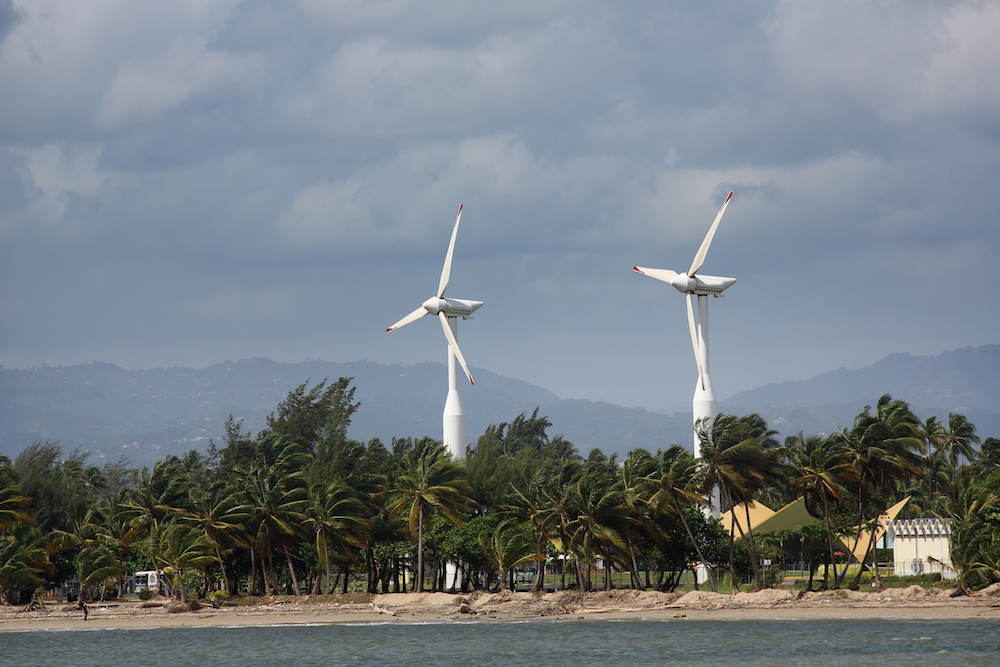
Berkeley Lab and five other DOE national labs have launched the PR100 study, to help Puerto Rico meet its goal of achieving 100% renewable energy by 2050. (Credit: TexPhoto/iStock)
Researchers at Berkeley Lab are working with five other Department of Energy national labs to develop a roadmap for the Commonwealth of Puerto Rico to meet its 100% renewable energy mandate. A new Memorandum of Understanding, signed earlier this month between the Commonwealth and the federal government, kickstarts this “PR100 Study,” a two-year project funded by FEMA to conduct a comprehensive analysis of pathways for Puerto Rico to meet its clean energy goals, with an emphasis on power system reliability, resilience, and generation planning.
“The grid challenges of moving to 100% renewable energy are compounded in an island system that has to be electrically self-sufficient, relies on oil to generate 45% of their electricity at present, and has a utility currently in bankruptcy,” said Berkeley Lab researcher Peter Cappers, an expert in utility regulation and rate design. “These are the types of challenges that the DOE national labs have the experience and know-how to take on.”
Along with doing modeling and analysis of Puerto Rico’s energy needs and various scenarios for meeting those needs, the study will look at the economic impacts and factors associated with the different pathways.
Cappers noted, for example, that Puerto Rico has various options to meet its renewable energy generation requirements. “The most economically efficient pathway will likely be to build lots of big solar arrays and wind facilities connected to the bulk-system. But a hurricane can knock down transmission towers leaving large numbers of citizens without power, like it did after Hurricanes Maria and Irma in 2017. Alternatively, rooftop solar and storage units can directly provide a homeowner with electricity before and after a hurricane, but at considerably higher up-front cost,” he said. “I’m interested in understanding the economic differences in these different approaches and the tradeoffs that they entail.”
That is one example of the sort of questions that Berkeley Lab and its partners will be addressing in the PR100 study. Berkeley Lab will be leading the economic impact analysis, working with researchers from the National Renewable Energy Laboratory and Colorado State University.
Additional information:
DOE will hold a public informational webinar on February 16 at 12:00 PM Atlantic Time to offer additional details on the PR100 study. Visit this event page to learn more and register for the event.